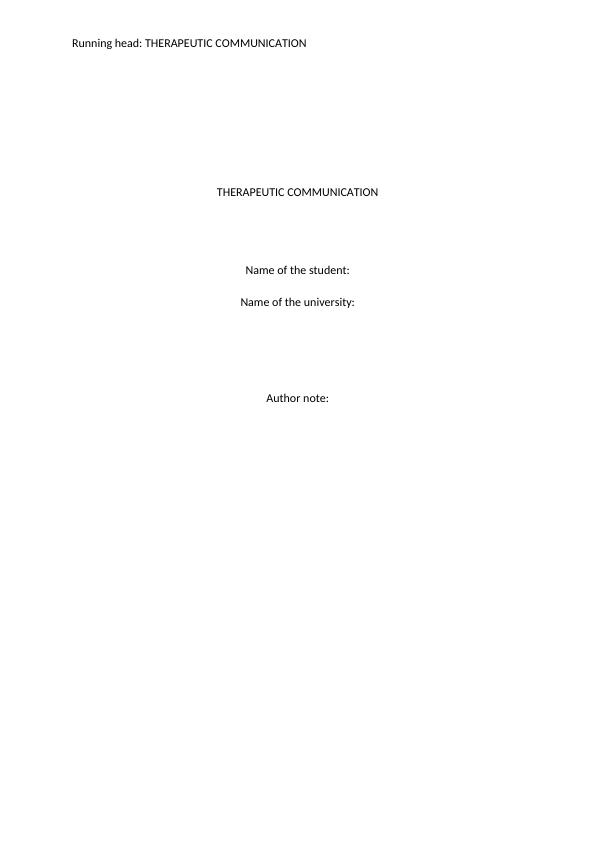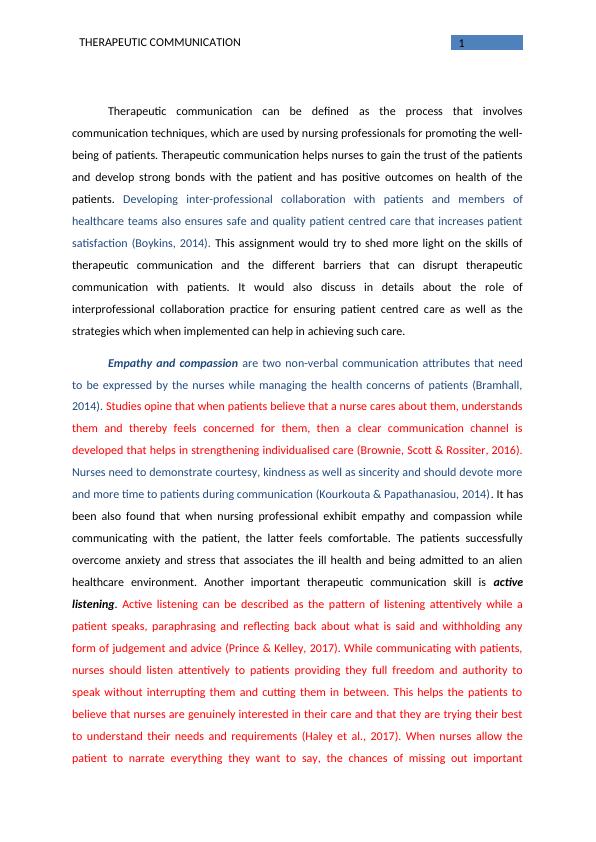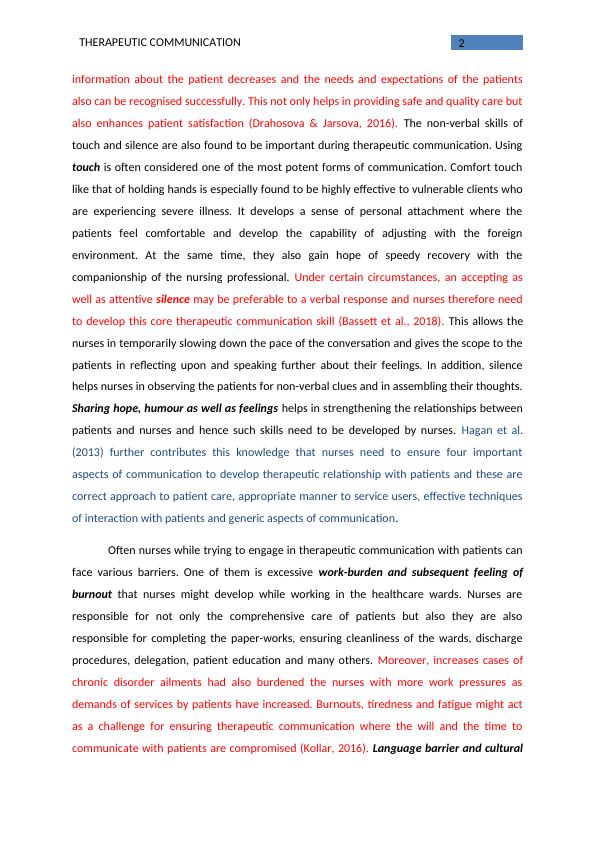Therapeutic Communication: Skills, Barriers, and Interprofessional Collaboration for Patient-Centered Care
Discuss core therapeutic communication skills required for Patient Centred Care and safe nursing practice, identify barriers to effective communication in nursing practice, discuss the role of interprofessional collaboration practice in delivering Patient Centred Care, and identify communication strategies to improve interprofessional collaboration practice and Patient Centred Care.
Added on 2023-04-24
About This Document
Therapeutic Communication: Skills, Barriers, and Interprofessional Collaboration for Patient-Centered Care
Discuss core therapeutic communication skills required for Patient Centred Care and safe nursing practice, identify barriers to effective communication in nursing practice, discuss the role of interprofessional collaboration practice in delivering Patient Centred Care, and identify communication strategies to improve interprofessional collaboration practice and Patient Centred Care.
Added on 2023-04-24
End of preview
Want to access all the pages? Upload your documents or become a member.



